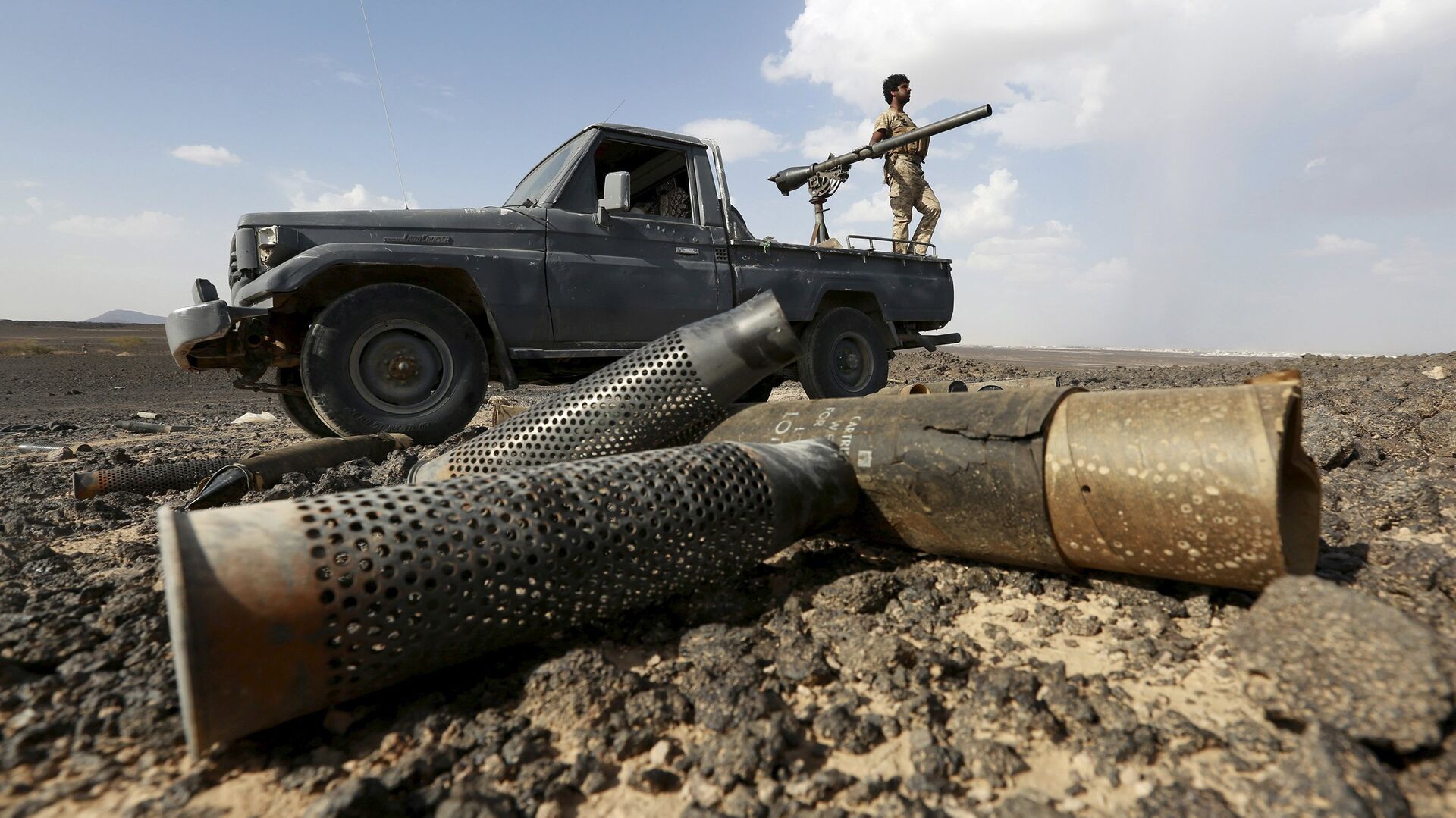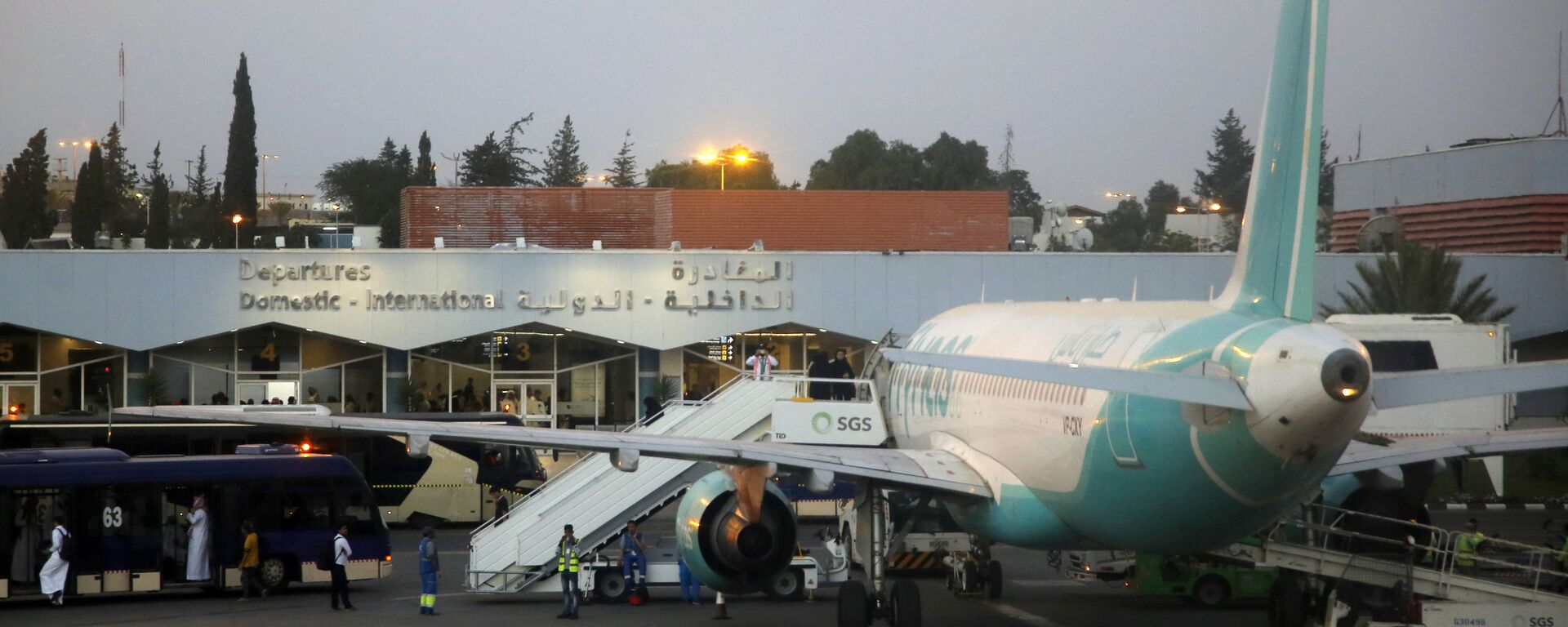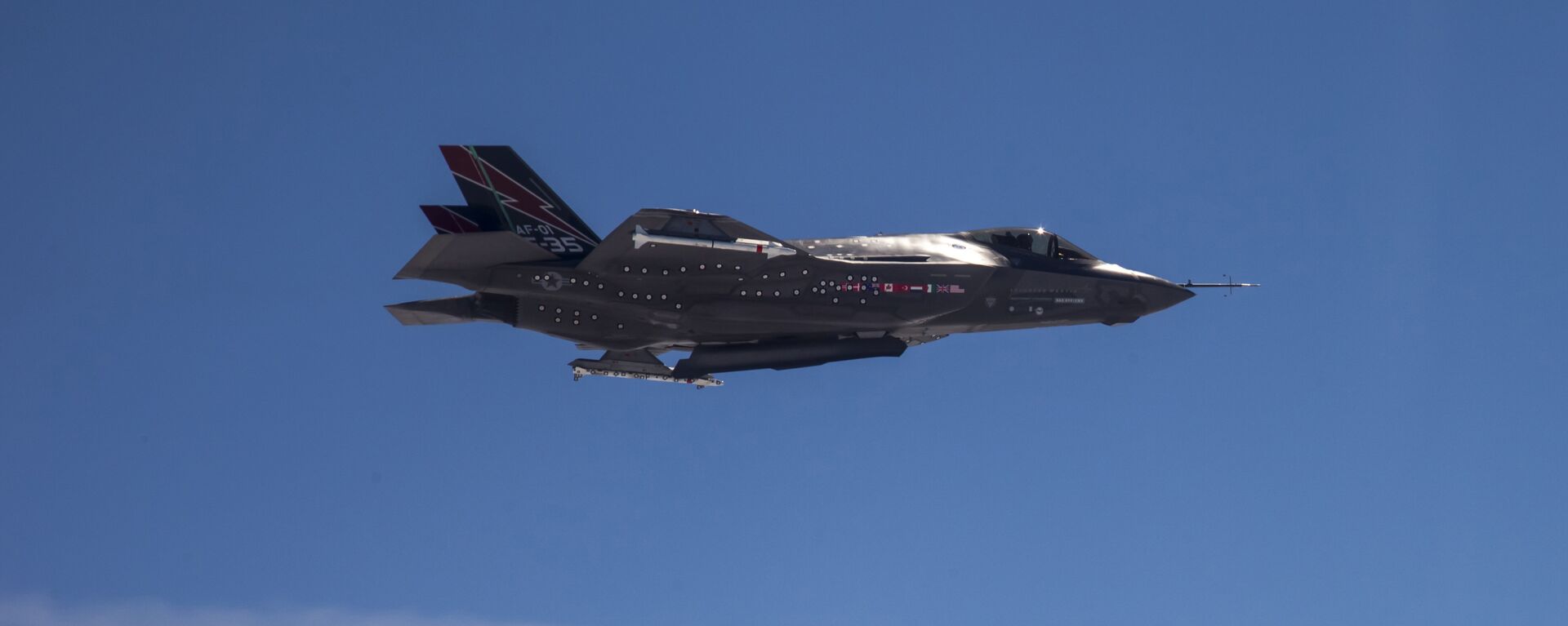Watch Yemen’s Houthi Fight to Take Key Base at the Gates of Marib City
19:04 GMT 06.11.2021 (Updated: 10:58 GMT 05.03.2023)

© REUTERS / Stringer
Subscribe
Yemen has been engulfed in civil war since late 2014, when Houthi forces seized control of Sanaa in a popular uprising sparked by the cancellation of fuel subsidies. Yemeni President Abdrabbuh Mansur Hadi fled to Saudi Arabia, and in early 2015, Riyadh and a coalition of mostly Gulf States intervened to try to restore him to power.
Yemen’s Houthi movement and their so-called popular resistance committee allies have reportedly captured a key military base previously held by troops loyal to the Hadi government, inching closer to both the province’s capital and its energy resources.
Unnamed local military sources cited by Iran’s PressTV indicated Saturday that the Houthis had carried out an “intense” multi-front attack on Marib’s al-Jubah district Friday involving the use of ballistic missiles and heavy artillery, seizing the Umm Reesh barracks after hours of fighting with “Saudi mercenaries,” which forced the enemy to withdraw.
The Houthis have released photos and videos of their operations, with footage showing militants in mountainous, arid locales firing heavy machine guns and artillery at enemy troops and vehicles. One video shows troops standing next to a sign at the Umm Rish base.
Footage of the fighters of Yemen army stationing in the frontlines of southern Marib fronts pic.twitter.com/AGH6Eech9P
— Yemen Army Media (@Yemenarmyeng) November 6, 2021
#YEMEN:#Sanaa forces take control over Umm Rish military camp in #Marib .
— Bin Ghaleb (@GhalebM0nz1i7) November 6, 2021
The #Yemeni army and popular committees (Sanaa forces) were able to take control over the Umm Rish military camp in Marib province during an operation, military sources said
1/2
pic.twitter.com/dGnVXelCUR
Umm Rish has been described as the “last bastion” for government forces in southern Marib, with the base’s seizure expected to make “rapid advances” possible toward the region of Safar, home to the province’s oil and gas fields – which are among the largest in the country.
Update #Yemen .
— Nikita Gerassimow (@NikGerassimow) November 6, 2021
Die #Houthis unternehmen den nächsten Versuch, die strategisch wichtige Stadt #Marib einzunehmen.
Sie veröffentlichten einen Zusammenschnitt der Kämpfe an den Zufahrten der Stadt.
Marib gilt als die inoffizielle Hauptstadt der Saudi-Koalition im Jemen.
(1/3) pic.twitter.com/7MnDB5oCST
Tweet reads: "Update #Yemen. The #Houthis make another attempt to take the strategically important city of #Marib. They have published a compilation of the fighting on the roads into the city. Marib is considered the unofficial capital of the Saudi coalition in Yemen."
Separate sources indicated Saturday that the Houthis had taken hills and mountains and opened the gates to the city of Marib itself. The regional capital, situated about 150 km east of Sanaa, is home to a major oil refinery, and according to the United Nations, up to 630,000 civilians live there – most of them refugees who fled the fighting between the militia and the Saudi-backed government forces.
Also on Saturday, Sultan al-Aradah, the pro-Hadi government governor of Marib, assured that the government’s Saudi coalition allies have provided “unlimited” military and logistical support to government forces aimed at destroying the Houthis’ reinforcement and capabilities.
Meanwhile, the Saudi Press Agency reported Saturday that the coalition had intercepted and destroyed an explosive-laden drone targeting Abha International Airport in southwestern Saudi Arabia.
Marib is the largest province of northern Yemen still under the control of the Hadi government, with most of the rest of the populous western portion of the country under the control of the Houthis after over six years of war.
The anti-Saudi militias reported Saturday that the coalition had launched 52 strikes in Marib in the past 48 hours, including about 30 airstrikes on Saturday.
On Thursday, the United States greenlit the sale of $650 million in Raytheon air-to-air missiles to Saudi Arabia. The sale followed demands from acting ambassador to Yemen Cathy Westley for the Houthis to “end the violence and accept a full ceasefire.”
Mohammed Ali al-Houthi, a high-ranking member of the Houthis’ supreme political council, slammed the Biden administration over the sale, saying it was evidence that Washington is not truly committed to peace in Yemen. Biden promised in the spring to end US support for “offensive operations” in Yemen, including “relevant arms sales.”
The Houthis launched an offensive to take Marib in February, with Hadi’s Saudi allies pouring in support to prevent the army from being routed and destroyed.
Yemen has been in a state of foreign-backed civil war since March of 2015, when Saudi Arabia, the United Arab Emirates, Morocco, Sudan and other countries put together a coalition to try to restore Hadi to power. Most of these countries withdrew from the conflict in the years that followed. In March 2021, after the pulling out of direct US military support, Riyadh floated a new peace initiative, including a nationwide ceasefire. The Houthis rejected the proposal, demanding that the Saudis first lift their economic blockade against ports and airports controlled by the militias.
Up to a quarter of a million people are feared to have been killed in the conflict, both in fighting and as a result of a humanitarian crisis caused by the coalition’s blockade. The UN estimates that three-quarters of the impoverished country’s population are in need of basic food aid and medical assistance.
The Houthis are a Shia Islamist political and militant movement that emerged from the Houthi tribe, predominant in northern Yemen. Achieving a measure of popularity with their anti-corruption, social justice, anti-imperialism, anti-Zionism and Yemeni nationalism campaigns, the group seeks to eventually gain control over all of Yemen and establish a republican form of governance.


